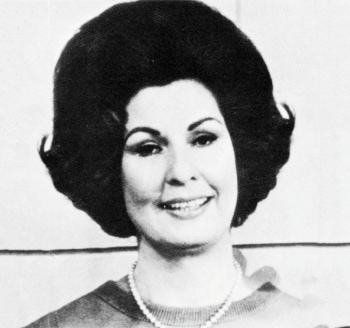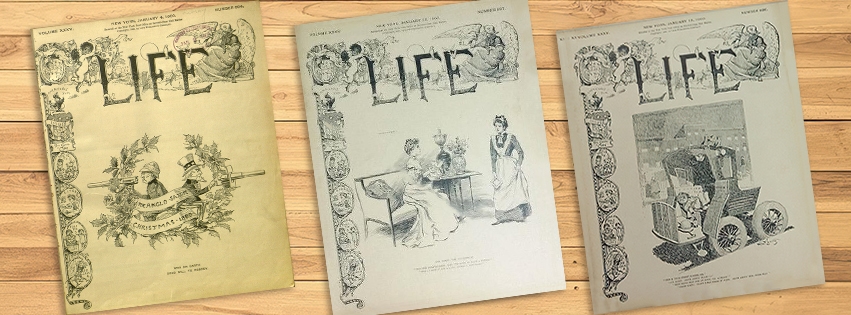In the year 1900, as Americans geared up for the start of a new century, the largest city on the Illinois River made national news. The reason, however, is not what many would have expected.
At the time, Peoria, Illinois, known for its whiskey making distilleries, was also leading the way in the production and distribution of corn byproducts like sugar, starch, oil and gum. “Here is the metropolis of the Corn Belt,” the Sioux City Journal acknowledged of Peoria in 1900. “Here corn is raw material for more kinds and greater quantities of products than anywhere else.” But that’s not why the city made news that year.
What did put Peoria in print was something much more subjective. And it all begins with Life magazine.
The Meanest in the Country
In January of 1900, the popular monthly of light entertainment stories and humorous illustrations had a challenge for its readers: Which city is the meanest in the country? Specifically, Life asked for readers to provide “a statement of facts which prove that any particular city is the meanest one in the country.”
“This is an important question,” the magazine implored, “and one that Life would like to have settled.”
Of course, this was in 1900 when the connotation of the word “mean” in regards to a place meant being shabby and unpleasant. Therefore, as the magazine implied, being the “meanest city” needed some explanation—hopefully clever ones—to make a point.
The writers weren’t even asked to reveal their names. “Each manuscript may bear a pseudonym which will be printed with the argument,” the magazine instructed. “Competitors must limit their arguments to three hundred words or less and must be printed on one side of the paper only… with that object in view, we offer a prize of ‘Fifty Dollars in Gold.’”
In the March edition, submissions began appearing in Life. The first one was about Duluth, Minnesota. “The location and the climate are the essentials,” a writer using the pseudonym Frozen Face Ike extolled. “In the first place, there’s the climate: Nine months of winter and three months of late fall covers that.”
Frozen Face Ike goes on to tell the tale of a man from Chicago who visited Duluth. “The worst winter that I ever spent in my life was the summer I spent in Duluth,” the man proclaims.
The reaction was immediate. The Duluth Herald charged Life with five instances of “libel” and labeled the “summer in Duluth” joke as one that has been heard on the streets for years. In fact, none other than Mark Twain may have said it first, the Herald claimed.
The contest was on.
A. Fugitive’s Letter
The next month’s submission was about Peoria, Illinois. It was signed by A. Fugitive.
“Peoria, Illinois is situated within easy smell of several packing houses, three distilleries, a glucose plant and a stagnant lake… When the sun shines in Peoria, it is last week’s sun just penetrating the soot… If you reside in the valley of Peoria, so thick are the smoke and dust that when you ascend the bluffs you experience nausea from the comparatively rarefied atmosphere… And if you dwell on the bluffs, you can venture below only when supplied with an individual smoke consumer and compass.”
A. Fugitive’s submission finishes with this: “Having briefly touched the subject of Peoria, I must now go and take a bath.”
The writer also invoked the names of Col. Robert Ingersoll and Bob Burdette as “two distinguished inmates” of the city.
Burdette is an interesting choice. Although he was born elsewhere, Burdette spent his youth in Peoria, where he finished high school and served in the 47th Regiment Illinois Volunteer Infantry. After the war, he wrote for the Peoria Transcript newspaper and later the Peoria Review. In 1874 after leaving Peoria, he went to Iowa to work for the Burlington HawkEye, where his “Haweyetems” columns received national notice. He is better known there. His recollections of Peoria, however, are cheerful. “I was a happy boy, all the year round I was happy,” he wrote in a letter about his school days at Peoria High.
While they were both influential citizens, Burdette and Ingersoll left Peoria and found success elsewhere. This, in fact, was the point the writer was trying to make. “Burdette, upon escaping, underwent such a reaction that he became a humorist,” wrote A. Fugitive. As for Ingersoll, the famous agnostic: “After being confined there, [Peoria] implanted in him the conviction that there can be no hell after death.”
In July of 1900, after receiving nearly thirty entries, Life announced the winner. It was the one for Peoria, Illinois. The announcement was so widely anticipated that it appeared in newspapers across the county. The Peoria Herald Transcript, however, buried it deep within a weekly edition.
“Someone signing himself A. Fugitive has been casting slurs on the fair name of Peoria,” the article reads. “Just who it is, is not known.” Acknowledging the win (“the humor and the money go to the author of Peoria”), the paper then names a man whom they suspect might be the perpetrator, but admit it “has not been verified.”
The national response was best exemplified by this exchange in the Cleveland Plain Dealer:
“Peoria is the great distilling town, isn’t it?
“Yes.”
“Then I suppose its meanness must be of the distilled kind.”

A More Polite Assessment
In contrast, a friendlier assessment of Peoria appeared in print many years later. Beginning in 1977, the etiquette coach and best-selling author Marjabelle Young Stewart put out an annual list of the “most mannered” or “most polite” cities in America. Peoria consistently made that list.
“I base my survey on business clients who report to me on places they find the most courteous,” she said in 1989 when asked why New York City, of all places, had also made the list. The results were not personal, Stewart explained. The cities were included because they rated well on responses from people who took her etiquette courses or questionnaires filled out by the general public.
“How often are you annoyed by your neighbors?” she would ask. “How would you rate the friendliness of retail in your city?” The inclusion of Peoria, however, may have been influenced by how many times she visited the city and polled its people. After all, Stewart lived in nearby Kewanee and often appeared in Peoria for events.
“To gloat would be impolite,” she would often say about the list, which grew in participation each year. By 2004, it included over 10,000 responses. That year Peoria finished in a three-way tie for second place behind another perennial winner Charleston, South Carolina. But Stewart’s list soon came to an end as she passed away just a few years later at the age of 82.
From the meanest to the most polite—regardless of what people actually thought of the city, either at the turn of the 20th century or at the end of it—Life magazine and Marjabelle Young Stewart kept Peoria in the public eye. PM
Ken Zurski is a longtime radio broadcaster, historian, storyteller and author.




